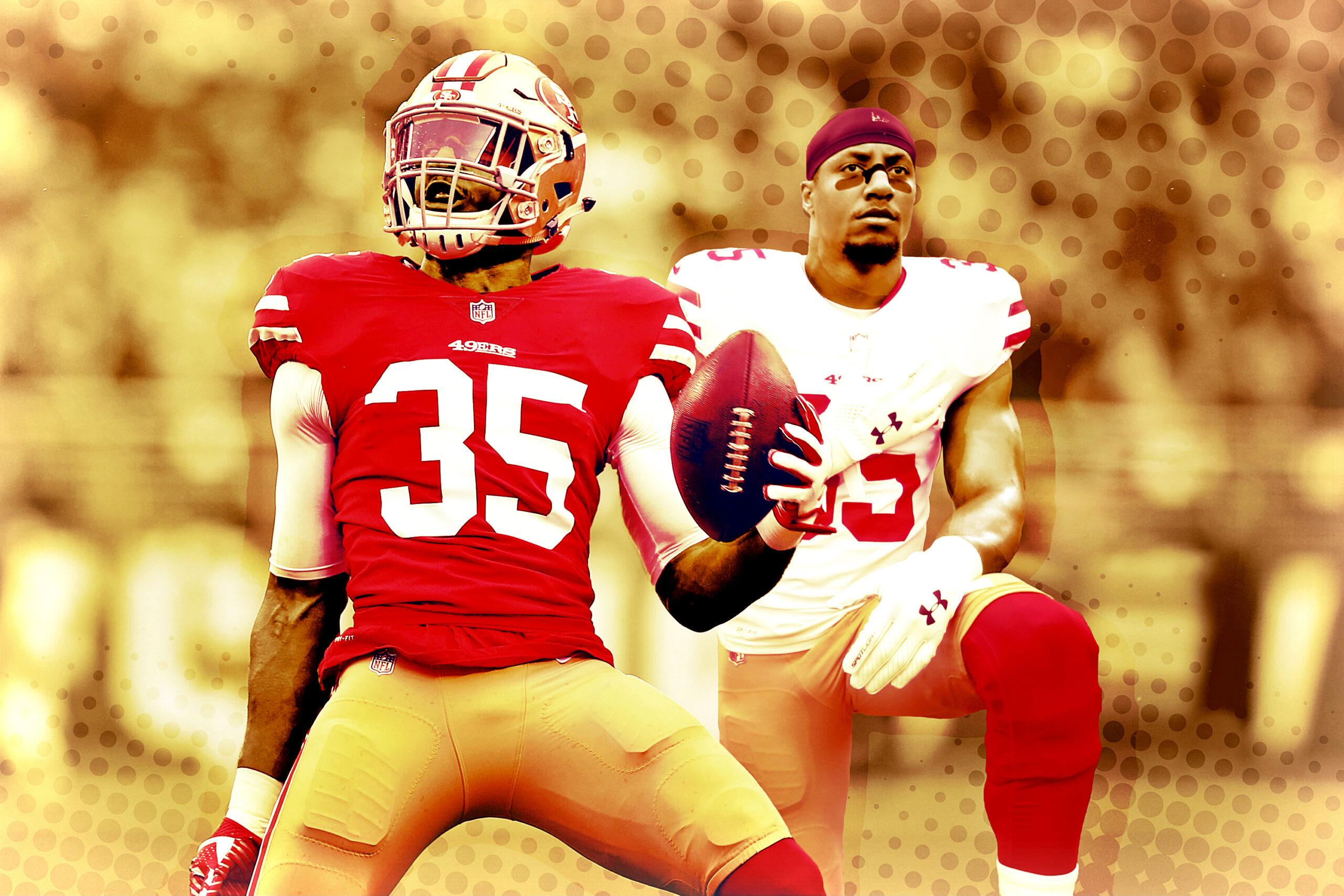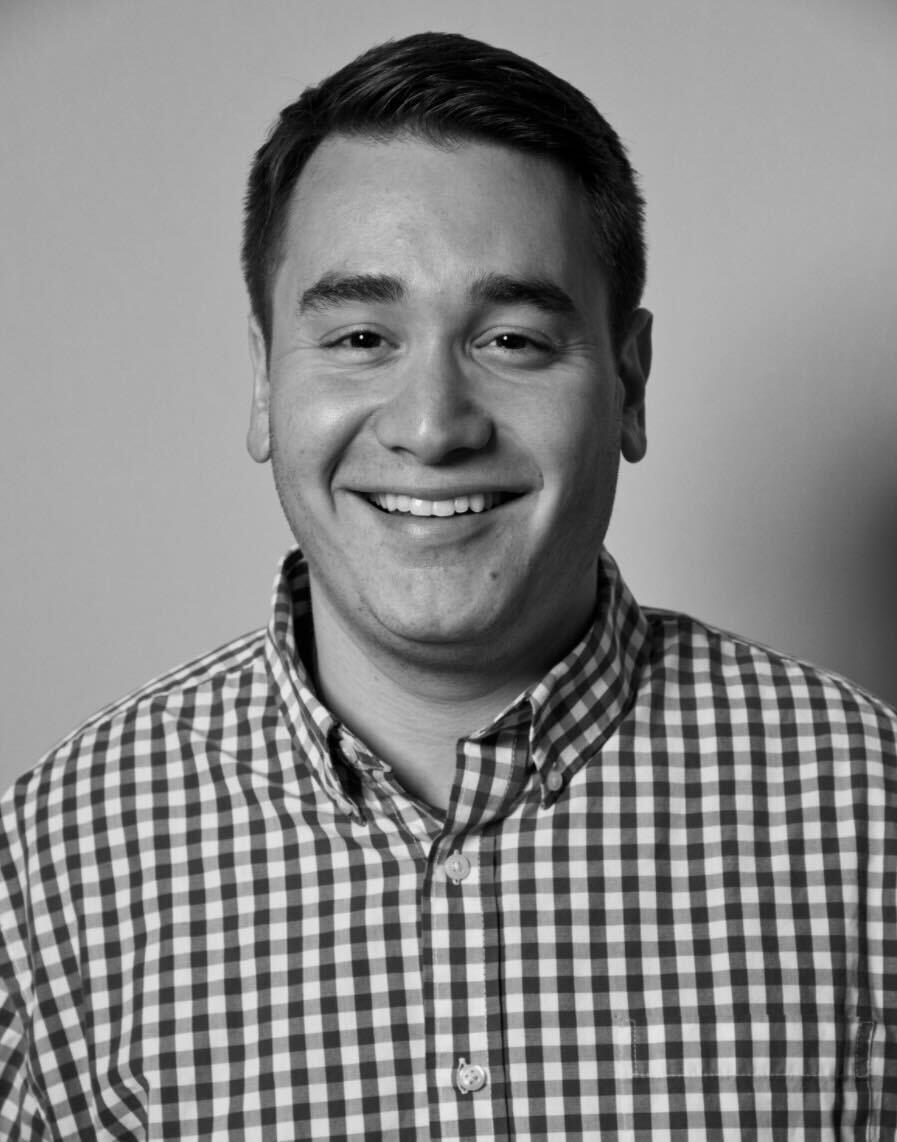What Eric Reid’s Free Agency Will Mean for the NFL
Reid once kneeled alongside Colin Kaepernick to protest racial injustice. He’s now about to test the free-agent market that shunned his former 49ers teammate. His experience could shed light on whether the league is truly willing to support the player activism it says it supports.
Four years after Colin Kaepernick nearly won Super Bowl XLVII with the 49ers, no NFL team wanted him on its 2017 roster. As more than 40 other quarterbacks signed with teams throughout the season, Kaepernick received just one public tryout invitation and no serious looks. Players, media members, and fans accused teams of shunning Kaepernick because he refused to stand for the national anthem during the 2016 season in protest of police brutality and racial injustice. Last October, Kaepernick filed a grievance against the NFL, alleging that its owners had colluded to keep him out of the league “in retaliation for Mr. Kaepernick’s invocation of his rights under the First Amendment and his leadership in bringing attention to racial inequality and social injustice.” The case is currently in the deposition phase.
Though Kaepernick became a cultural lightning rod in 2016, he was not alone the first time he kneeled during the anthem. Then-teammate and starting 49ers safety Eric Reid was by his side. Together Kaepernick and Reid knelt in protest throughout the season, and when Kaepernick didn’t return to the 49ers in 2017—he opted out of his contract that March after the 49ers made it clear they planned to release him—Reid continued kneeling during the anthem. He also criticized teams for not signing Kaepernick and joined the Players Coalition, a group of NFL players that formed out of a joint desire to advocate for social justice and eventually negotiated an $89 million commitment from owners to fund projects at a national and local level.
Last season was the final year on Reid’s contract with San Francisco, and on March 14 he’ll become a free agent. Given Reid’s ties to Kaepernick and outspokenness about issues that have proved polarizing around the league, his experience on the open market should be illuminating: It could show just how willing NFL teams are to sign players who protest in ways that make the league uncomfortable.
“I am aware that my involvement in this movement means that my career may face the same outcome as Colin’s,” Reid wrote in a New York Times op-ed in September. “But to quote the Rev. Dr. Martin Luther King Jr., ‘A time comes when silence is betrayal.’ And I choose not to betray those who are being oppressed.”
Reid first felt moved to protest after police fatally shot 37-year-old Alton Sterling in Reid’s hometown of Baton Rouge, Louisiana, in July 2016. Reid approached Kaepernick before the 49ers’ final preseason game of that year about joining his protest, but he felt uncomfortable sitting during the anthem as Kaepernick had during the first three weeks of the preseason. The two met with Nate Boyer, a former Green Beret who wanted Kaepernick and Reid to stand for the anthem. Reid suggested a compromise: kneeling. All three agreed that this would be a respectful form of protest, and Kaepernick and Reid knelt in the following game and all through the 2016 regular season.
As the 2017 season began, NFL teams’ refusal to sign Kaepernick loomed large among players who supported his efforts. But only a handful of players, including Reid, Raiders running back Marshawn Lynch, and Chiefs cornerback Marcus Peters, knelt or sat during the anthem. That changed in late September when President Donald Trump commented on the protests at an Alabama campaign rally for then-Senator Luther Strange. Trump said: “Wouldn’t you love to see one of these NFL owners, when somebody disrespects our flag, to say, ‘Get that son of a bitch off the field right now. Out! He’s fired. He’s fired!’”
Those comments sparked mass protests among NFL players, and in a 22-minute press conference five days after the rally, Reid addressed the president’s remarks and provided an in-depth explanation as to what, specifically, he was protesting. Reid pointed to police brutality, bail policy, racial discrepancies in drug charges, and the impact of prosecutorial discretion among district attorneys as areas he was aiming to bring attention to and change. He was also upset with how the narrative around the protests had splintered, and he said he wanted people to focus on the issues that had originally inspired him and Kaepernick to begin protesting.
“The most hurtful thing is the smearing that’s happened to Colin and I,” Reid said at the press conference. “We have the absolute best intentions. … We did it, because it’s for the greater good. It’s more than about making money, it’s more than about our dream. I’ve wanted to be a professional football player my entire life. But this is more important to me than that.”
Reid understood he could be risking the future of his NFL career when he protested last year. This spring, his free agency will be instructional for players around the league who’ve undertaken that same risk.
San Francisco selected Reid with the 18th pick in the 2013 draft, and the safety made the Pro Bowl during his rookie season. In his five years with the 49ers, Reid led the team in interceptions (10) and was second in games started (69), games played (70), and tackles (264). Spotrac estimates that Reid, who turned 26 in December, can command a four-year deal in free agency worth roughly $35 million. The 49ers have nearly $70 million in cap space—fifth most in the league—even after accounting for the recent Jimmy Garoppolo signing, but after backup safety Jaquiski Tartt impressed at both free and strong safety last year, Reid might be considered replaceable.
Unlike the case with Kaepernick, there’s every indication that Reid will sign with an NFL team when free agency begins. NFL.com’s Gregg Rosenthal and Chris Wesseling ranked Reid as the 25th-best free agent available entering the offseason (two spots behind tight end Jimmy Graham) and ESPN’s Kevin Seifert ranked Reid 18th. But Seifert also wrote that “Reid will provide another test case for the ongoing impact of NFL player protests” and suggested that he may find navigating the free-agent market to be more difficult than his peers.
Eagles defensive end Chris Long was one of a handful of white players openly supportive of Kaepernick’s protests in 2016 and went through free agency twice in the past two years. He told ESPN’s Howard Bryant that his own social stances may have negatively affected his negotiations last year. Long said he received less interest in 2017 than in 2016 despite coming off of a healthier and more productive season. “I wanted to play,” Long said. “Was it because I was supportive of Kaep? You didn’t know. I had to make phone calls.”
As a Pro Bowl safety entering the prime of his career, Reid could see interest from a dozen or more teams in free agency. But there’s certainly a chance that some NFL teams won’t be interested in signing one of the first players to kneel during the national anthem. On Tuesday, reports surfaced that Dolphins owner Stephen Ross would require his players to stand for the anthem in 2018. Ross later issued a statement that his words had been misconstrued, but other team owners—like Jerry Jones, who said in October that the Cowboys would not play if they were “disrespecting the flag”—have an anti-kneeling sentiment.
Owners tried to appear supportive of players’ rights to protest in 2017, punctuated by the deal made with the Players Coalition last fall. But Reid’s experience in free agency will show if that “support” extends to players with a history of protesting when they hit free agency. Whether Reid immediately signs for millions or waits for months for his next contract, he seems at peace with the decisions he’s made. On December 30, one day before the final game of the 49ers season, Reid was asked if he was concerned if his protests would hinder his chance to sign with another team.
“I wouldn’t use the word concerned,” Reid told ESPN’s Nick Wagoner. “I would say I understand that’s a possibility. And I’m completely fine with it. The things that I’ve done, I stand by, and I’ve done that for my own personal beliefs. Like I said, I’m fine with whatever outcome happens because of that. … There are probably teams that won’t want to talk to me because of [the protests]. I’m hopeful that I will be on a team next year, but if not, again, that’s OK with me.”

